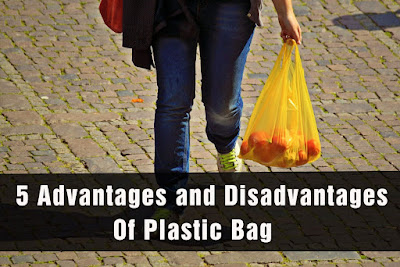Plastic bags are lightweight, flexible, and commonly used for packaging and carrying goods across the world. Found in grocery stores, retail shops, and households, they offer practical convenience at a low cost.
However, their widespread use has also raised serious environmental and health concerns. Understanding the advantages and disadvantages of plastic bags is essential for making informed decisions about their use and disposal.
Advantages of Plastic Bags
1. Lightweight and Easy to Carry
Plastic bags are extremely light, making them easy to handle, transport, and store. Their portability is a major reason for their popularity, especially in retail and grocery settings. They are also less bulky than alternatives like paper or cloth bags, making them convenient for everyday use without adding extra weight.
2. Water-Resistant and Durable
One of the key benefits of plastic bags is their resistance to water and moisture. This makes them ideal for protecting items from rain, spills, or other forms of liquid damage. Their durability ensures that they can hold a reasonable amount of weight without tearing easily, especially for short-term use.
3. Inexpensive to Produce and Distribute
Plastic bags are cost-effective for manufacturers and retailers. They are cheaper to produce in large quantities compared to paper or fabric bags and require less energy and water during manufacturing. Their low production cost makes them a preferred choice for businesses looking to minimize packaging expenses.
4. Reusable for Various Household Purposes
Although designed for single use, plastic bags are often reused for purposes like lining trash bins, carrying lunch, or storing household items. This secondary usage extends their utility and can help reduce the need for purchasing other types of storage or packaging products for minor needs.
5. Space-Saving and Compact
Plastic bags can be folded into a very small size, allowing easy storage at home or in purses and glove compartments. Their compactness makes them convenient to keep on hand for unexpected shopping or carrying needs, unlike bulkier alternatives which require more space.
Disadvantages of Plastic Bags
1. Environmental Pollution and Waste
Plastic bags contribute significantly to environmental pollution, especially when they are not disposed of properly. They often end up in oceans, rivers, and landscapes, where they can take hundreds of years to decompose. Their accumulation harms ecosystems and contributes to growing land and marine pollution problems.
2. Harmful to Wildlife and Marine Life
Wild and marine animals often mistake plastic bags for food or become entangled in them. Ingesting plastic can cause internal blockages, malnutrition, or death. Birds, turtles, and fish are especially vulnerable to plastic pollution, which has devastating effects on biodiversity and aquatic ecosystems.
3. Non-Biodegradable and Difficult to Recycle
Most plastic bags are made from polyethylene, which is not biodegradable. Even when recycling is possible, the process is often inefficient or unavailable in many areas. Many recycling systems do not accept plastic bags due to the risk of clogging machinery, leading to their disposal in landfills or the environment.
4. Health Hazards from Microplastics
As plastic bags degrade slowly, they break into tiny particles known as microplastics. These particles can contaminate soil, water, and even enter the food chain. Humans may ingest microplastics through food and water, which raises concerns about long-term health effects that are still being studied.
5. Encourages a Disposable Culture
The ease and low cost of plastic bags promote a throwaway culture, where items are used briefly and discarded without consideration. This mindset contributes to unsustainable consumption patterns and excessive waste. Reducing plastic bag usage is seen as a step toward more environmentally responsible habits and sustainable alternatives.
Conclusion
Plastic bags offer undeniable convenience, affordability, and practicality for short-term needs. However, their environmental impact and long-term risks make them a major concern for sustainability. Balancing their use with eco-friendly practices, such as recycling and choosing alternatives, is essential for reducing harm to the planet while maintaining functionality.










No comments:
Post a Comment